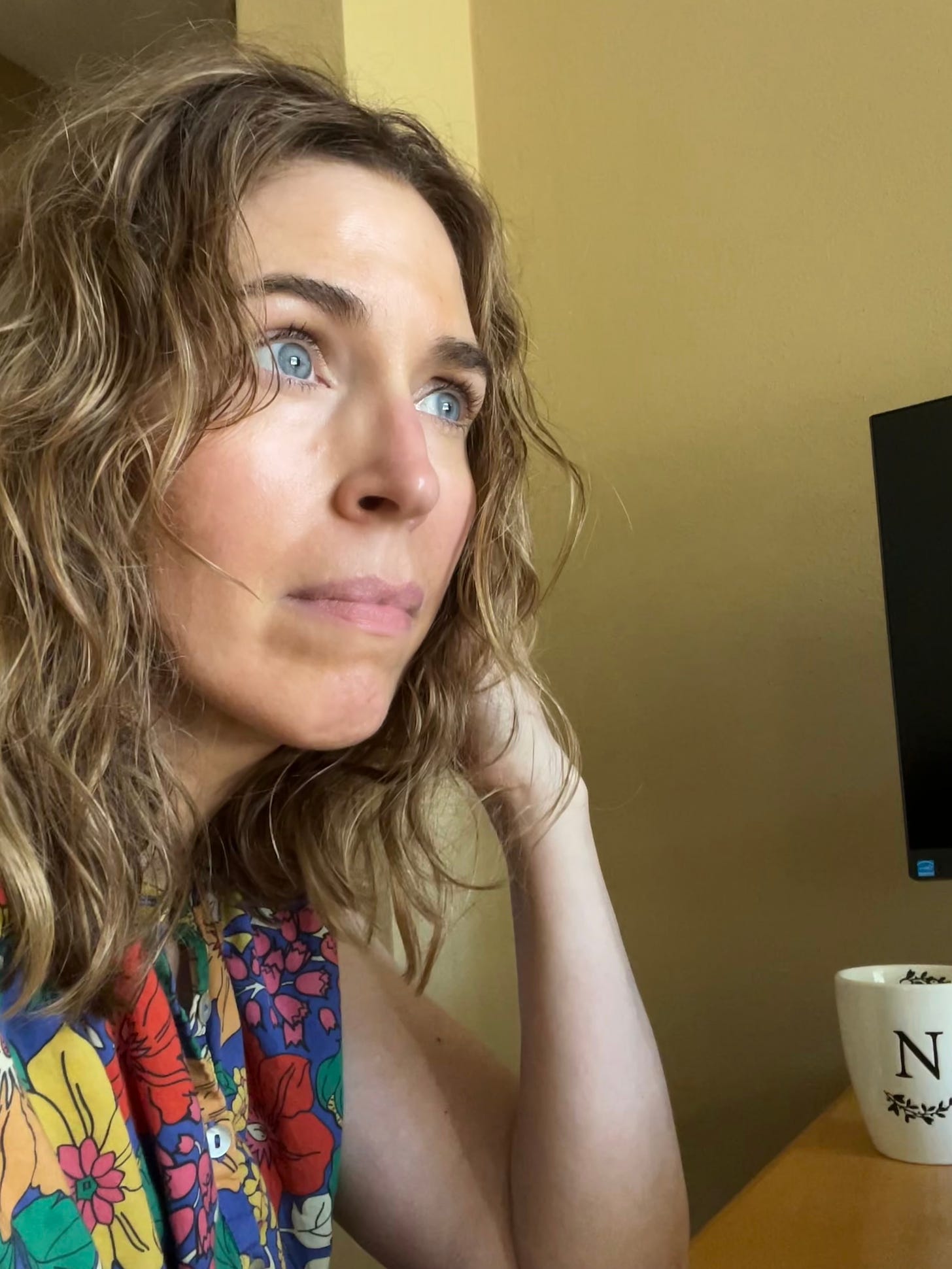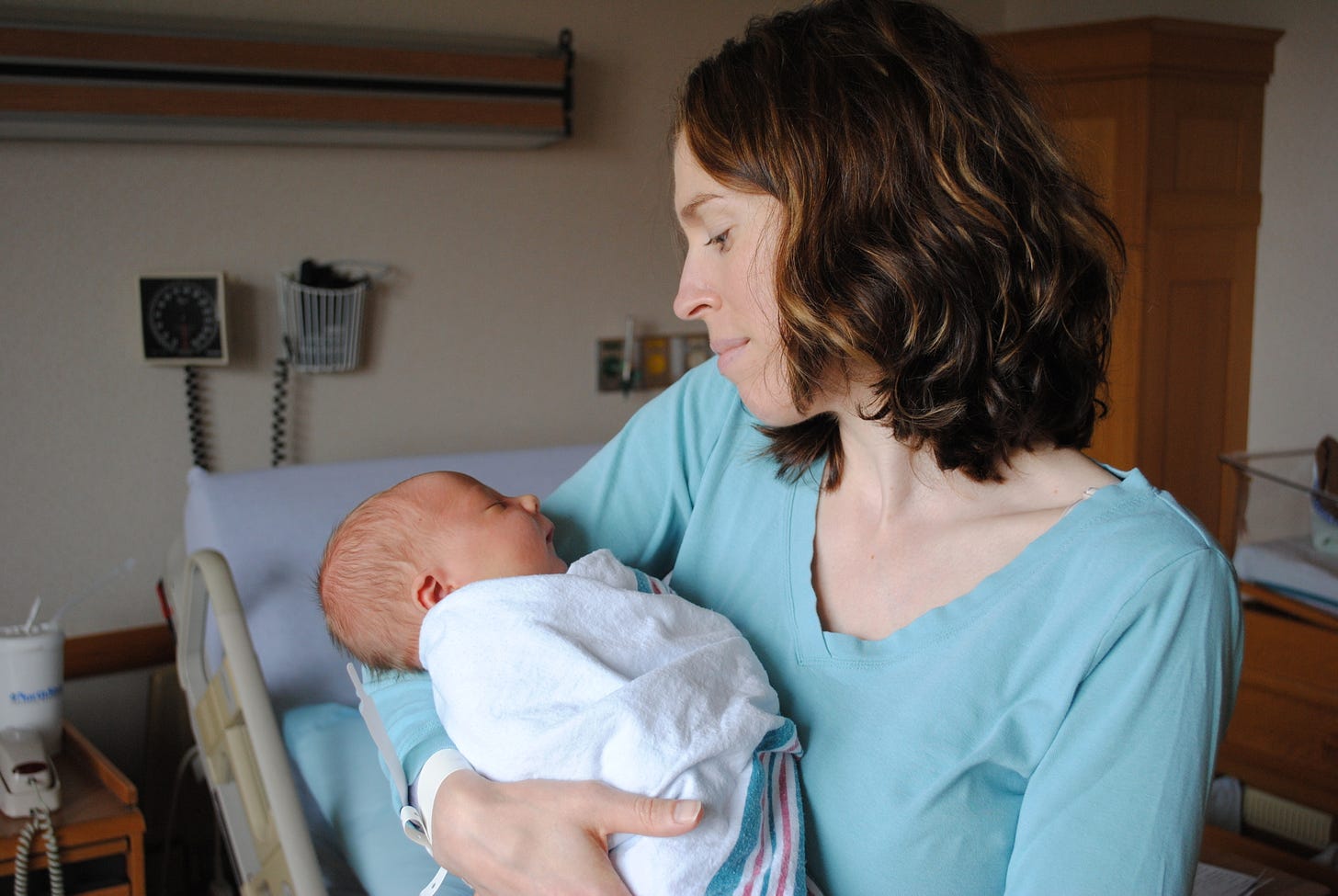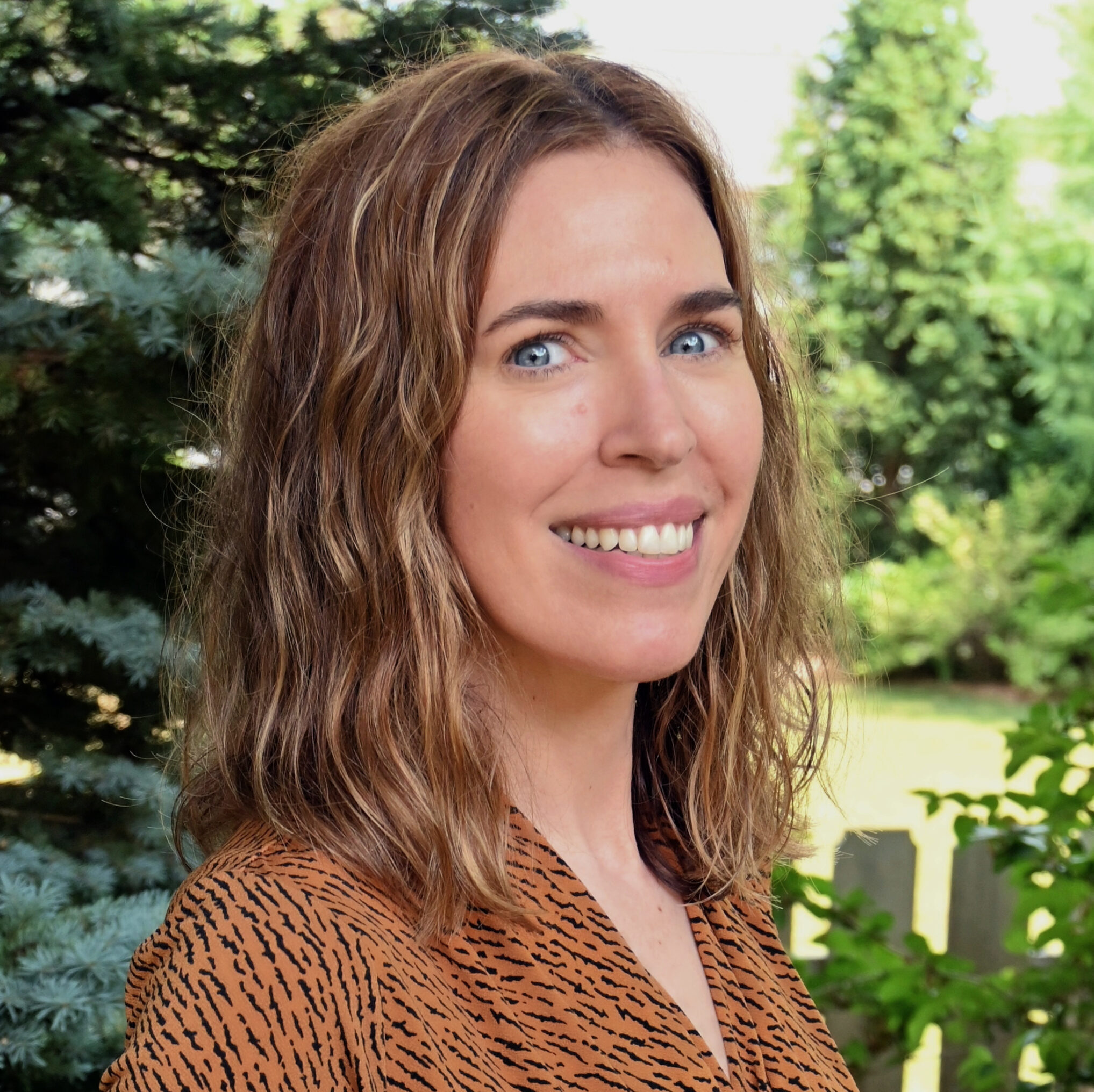Welcome, Nerds to our new series:
Nerdy Notes: Science in Story & Verse
In these posts, our Nerdy Girl scientists and clinicians will share personal stories, insights, poetry, and more. While these posts may be lighter in terms of numbers and figures, they will still be rooted in our tradition and commitment to providing accessible and trustworthy information.
Stay inspired, stay creative,
Those Nerdy Girls&+
Why I Went Back to my Midwife for Menopause Advice
I was the kind of kid who clung to my mom’s leg, reaching for a hand whenever I saw one free. Later, I held hands with kids on my block while playing outside and walking to school with friends. By third grade, I learned I was “too old” for hand-holding. But I didn’t listen. Instead, I listened to my friends who came to the States from other parts of the world. They knew that was just an odd American rule. “Friends of any age can hold hands,” they told me. And that felt truer to me.
But sometime around age twelve, I rejected hand-holding. Like the grown women I watched and wanted to grow up and be, I was afraid of seeming “needy” or “clingy.” And no one wanted to be labeled “high maintenance.” Women in the 80s and 90s were expected to be upgraded versions of Stepford machines, now self-supporting, multi-tasking, and made-up in a new light, thanks to the new office setting on Conair’s lighted make-up mirror. Always forever young and always on schedule — whether the deliverable was a human baby, a sales report, or an orgasm.
I got pregnant right after pharmacy school. Late in pregnancy, I had a lot of questions as I tried writing up my own evidence-based birthing plan, one that accounted for all the technical aspects of giving birth. So I went back to my college campus library, a place where answers always seemed to be found.

Clearly, the body as a machine mentality seeped into my expectations of what childbirth would be like. Then came the wait, the false labor starts and stops, and the unexpected feelings of never-felt-before pain and discomfort. The neat algorithmic process I imagined never happened. My plan went out the window. But my plan wouldn’t have mattered anyway. The hospital’s 90s drive-thru delivery model seemed to supersede anything a pregnant person wanted or needed.
So five years later, when I was pregnant with my second, I found a new group practice in a new health system. “For sure, they’d be better — anything had to be better,” I told myself. I showed up at my first appointment at the peak of nausea. Showing no concern that I lost ten pounds and was throwing up a dozen times a day, they offered only a “good luck” gesture of a pat on the back.
But before leaving, I heard one sentence that made me never want to return: “If you come to the hospital, you’re gonna get the pit”—as in Pitocin, the brand name for a medication form of oxytocin. I appreciated their honesty. I still had time to look for prenatal care elsewhere.
It wasn’t “the pit” I had a problem with. The life-saving pit was definitely an option in my birthing plan. And I was so glad I “got the pit” when I started hemorrhaging after my last birth. What concerned me was the “you’re gonna get” language — no matter the individual or situation. The lack of consent sounded similar to when I had my first baby, and my doctor broke my bag waters without discussing or even telling me in advance — or at all.
I desperately wanted to find a different prenatal care practice. I still wanted options — au naturel seemed overrated and oversold. By then, I’d heard enough real-life baby stories from other moms to know the stories I binge-watched on A Baby Story were as fakey fairy-tale as any reality TV. Plus, the whole “natural” versus “medicated” childbirth debate just seemed like a new way to judge and divide mothers, adding to an ever-growing list.
I wanted a birthing clinician who was medically trained and treated me as a person with a voice and a whole body. And I wanted something else I’d long forgotten. “I need hand-holding too,” I admitted to myself during a pregnant pause between puking, realizing I never actually outgrew the need. Does anyone?
Fortunately, I found a new place for prenatal care within a drivable distance and I had the means to get there. In the first conversation with my midwife, she explained how she had her first baby in Italy and her second child in the States. The differences in birthing experiences were startling, inspiring her to become a midwife and offer whole-person care for pregnant people. “Safety comes first,” was still her mantra. All the 21st-century medical care was available the moment needed or wanted, with gratitude and without judgment. But she also understood that modern medicine can’t meet every human need.
I was so fortunate to have her support during my next three pregnancies and deliveries. I felt safer, and my births were safer because of her. I haven’t found medical care like that ever since, and I’ve wondered why. What made my midwife so special? I don’t think it was her credentialing alone or because she herself had given birth. I’ve learned that training and personal experiences don’t always translate into someone being more empathetic to another person’s experience.

What felt magical about my midwife was that she knew how to be with a person. She knew how to listen instead of focusing on formulating an answer, how to imagine another point of view, and how to hold hands with someone while figuring it out together.
What also helped was that my midwife was an outsider to the system who challenged norms and asked questions. Why must people in uncomplicated labor be strapped to a bed when they don’t want to be? Why is flat on your back and legs up the best and only pushing position? Why can’t someone wear their own nightgown rather than the hospital gown that makes them itchy?
The two hospital systems closest to me then in suburban Chicago didn’t allow midwives to practice at the time. My midwife was a unicorn who saw the water everyone else was swimming in, noticing the ways — big and small — that nonsensically made childbirth harder and more traumatic than it needed to be.
I recently turned fifty. My last “baby” is now nine. He’s starting to feel “too old” for hand-holding. But the beauty of nine is you’re still little-kid enough to go back and forth. Why can’t everyone feel free to hold hands at every age? I’m trying to relearn that it’s OK. And I’m trying to help my mom feel safe and secure by accepting hand-holding whenever she needs it. But it’s hard, especially when “it’s all on me” thinking is all you’ve ever known or when you can’t remember ever feeling like hand-holding was OK to need or want (and definitely not ask for).
Last week, I went back to my midwife for the first time since my son was born. Again, I went for the hand-holding. But this time, I also needed meno advice. I feel the same insecurity and uncertainty about the transition to menopause as I felt during pregnancy. Except this time, it truly feels never-ending. I’ve been feeling perimenopausal symptoms since I was 46, despite having regular periods ever since.
It’s true that access to information is better today than ever before. My mom didn’t even know what a period was when she got hers, and her awareness of menopause wasn’t much better. But even today, many people don’t learn about the menopause transition until they’re already in it.
What’s known about menopause is also inadequate. Despite the mountainous amount of info online, the knowledge gaps are vast. (Menopause has only recently gotten attention from policymakers and researchers.) Plus, like everything else, quality information is often mixed in with inaccurate or confusing messages, myths, and manipulative mistruths.
Information matters. But information isn’t always enough. People need support and help making sense of the information to figure out how it can help them. I know I do. Similarly, clinicians who are only trained by learning information without ever spending much time with the patients they care for seem to be missing the kind of insight people want—and need. Finding high-touch care is getting harder to find outside of concierge medicine.
All the more reason I felt so grateful for having a chance to talk with my midwife about how to manage my menopause transition. Some bigger points she shared included:
✅ Your body doesn’t need to conform and change at the convenience of anyone. There’s no “right” timetable.
✅ Menopause is unpredictable. Like having a baby, you can’t control everything. Learning to sit with uncertainty can help.
✅ Help for the shifting symptoms along the way is available. It may take trial and error and multiple approaches, but you can feel better. There’s no reason you need to suffer in silence or spend nights without sleeping.
✅ The menopausal phase of life may include bothersome symptoms and be long-lasting. Or it may not. Either way, everyone experiences increased health risks. Addressing whole-body health is essential. Getting screened or treated early may lead to better health outcomes for years to come.
I’ve heard this type of information before. But it makes a world of difference hearing it from someone you trust as they guide you through while holding your hand. That’s a difference that every one of us can make for someone. What can be more magical than that?


